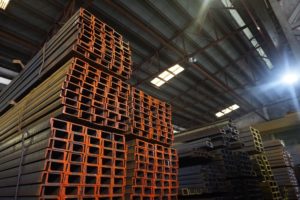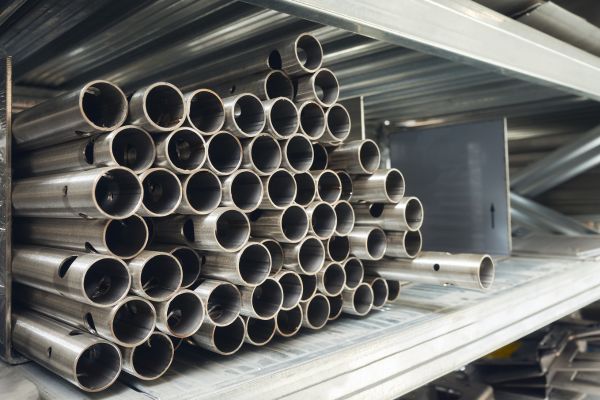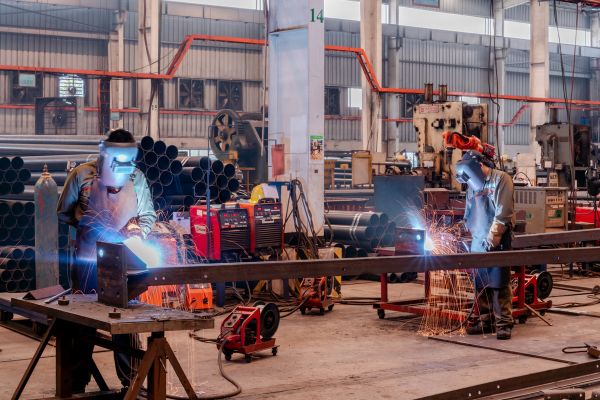
Channel bars are essential structural components used in various construction, industrial, and engineering projects. Their “C” or “U” shape provides a unique combination of strength and stability while being cost-effective. These bars play a crucial role in structures that require high load-bearing capacity and long-term durability, making them an integral part of modern construction practices.
In construction, channel bars are favored for their versatility. They are commonly used in beams, frameworks, and support structures. Their distinctive shape allows them to resist bending and deformation, making them perfect for handling heavy loads without significantly increasing the overall weight of a structure.
When choosing materials for any project, factors such as load-bearing capacity of steel bar, durability, and budget play a significant role. Channel bars offer an optimal balance of these factors, making them a preferred choice for a variety of applications.
Strength-to-Weight Ratio and Design Versatility
The “C” shape of a channel steel bar provides an excellent strength-to-weight ratio, which is one of the main reasons it is so widely used in construction. This geometry allows them to offer significant structural support while keeping the material weight relatively low. This balance is crucial for projects that require strong yet lightweight components, such as frames, supports, and beams. Their ability to handle heavy loads without adding unnecessary bulk makes them a highly efficient choice for modern construction.
When compared to other structural materials, such as I-beams or square bars, channel bars offer more flexibility in design. I-beams, while strong, are typically bulkier, and their shape may not be as versatile for tight spaces or intricate designs.
On the other hand, square bars, although durable, do not offer the same level of efficiency in terms of load-bearing capacity and weight reduction. Channel bars excel by striking a balance between strength and versatility, making them ideal for applications where weight and design flexibility are critical.
Load-Bearing Capacity and Stability
Channel bars are known for their exceptional load-bearing capacity, which makes them particularly valuable in high-stress applications. Their “C” shape enables them to efficiently distribute loads, providing the necessary structural support without sacrificing flexibility. This quality is crucial in situations where heavy loads need to be supported over extended periods, such as in the construction of beams, frameworks, or other critical support structures.
In horizontal applications like bridges, flooring systems, and frameworks, the design of channel bars enhances stability by resisting bending and deflection. This ensures that the structure maintains its integrity, even under substantial weight or dynamic loads. Channel bars are also known for their ability to maintain stability under changing conditions, such as traffic on bridges or shifting loads in industrial machinery setups. This stability further increases their reliability in construction, making them a preferred choice in environments where consistent performance is essential.
Examples of load-bearing applications where channel bars are particularly effective include support beams in industrial warehouses, the framework of heavy machinery, and cross supports in bridge construction. In each of these cases, channel bars are chosen for their durability and proven capacity to withstand significant stress over time.
Cost-Effectiveness and Affordability
One of the main advantages of channel bars is their cost-effectiveness. They offer an optimal combination of strength and affordability, making them an economical choice for large-scale construction projects. Their efficient strength-to-weight ratio allows fewer materials to be used while still providing the necessary structural support. This means that contractors can reduce material costs without compromising on the quality or performance of the structure.
When compared to other structural materials like I-beams, reinforced concrete, or steel plates, channel bar price is typically at a lower price point. Their straightforward manufacturing process, which involves simple cutting and shaping, allows for cost savings. Additionally, since they can be produced in bulk with minimal complexity, they are readily available and often come at a competitive price.
In the long term, the channel bars offer significant cost savings due to their durability and low maintenance requirements. Their strong design helps reduce wear and tear, which means they need fewer replacements or repairs over time. This makes them a more cost-effective solution than other materials that may require more frequent maintenance or replacement, such as wood or less durable steel alternatives.
Having a variety of channel bar dimensions, along with their simple production process, makes them especially cost-effective for large projects. Contractors and engineers looking to optimize their budgets often turn to channel bars to provide the strength and stability needed without overspending on materials.
Why Channel Bars Remain a Top Choice

Channel bars remain a top choice in the construction industry due to their exceptional performance, cost-effectiveness, and versatility. Their unique “C” shape offers a strong yet lightweight solution for both horizontal and vertical applications. The ability to handle heavy loads while minimizing the weight of the material makes channel bars ideal for a wide range of structural uses, from beams to frameworks, flooring systems, and even bridges.
Their cost-effectiveness plays a key role in their continued popularity. Channel bars provide long-term value by offering lower maintenance costs and fewer replacements compared to other materials. Their ability to perform well under high stress, while maintaining durability over time, makes them an attractive option for many construction projects.
Moreover, the versatility of channel bars is a significant factor in their widespread use. They can be adapted to fit various design requirements, offering flexibility in structural applications. Whether used in heavy-duty frameworks, support beams, or as part of larger, more complex structures, channel bars deliver both reliability and performance.
Channel bars meet the essential needs of modern construction: strength, stability, and cost-effectiveness. Their ability to perform under heavy loads, maintain stability over time, and remain affordable makes them a preferred choice for engineers and contractors. Whether for industrial warehouses, bridges, or other large-scale projects, channel bars continue to be an integral part of building design and construction.
He-Max Industrial Corporation, Your Partner for Your Channel Bar Needs
He-Max Industrial Corporation provides high-quality channel bars designed to meet the diverse structural and load-bearing needs of your projects. Whether you’re working on a large-scale construction, industrial framework, or specialized engineering design, our channel bars offer the strength and durability you need. We also offer a competitive channel bar price in the Philippines.
We offer channel bar specifications in various sizes, suited for different applications. Our expert team is ready to consult with you and help find the best solution for your project’s unique needs. Contact us today for a consultation and let us help you strengthen your structure with reliable, cost-effective materials.
For more information or inquiries, feel free to contact us at:
- Trunkline: (632) 8275-3888
- Customer Service Hotline: 0917-1158387 (Globe) | 0925-8092196 (Smart)
Follow us on social media for updates and more industry insights:
- Facebook: https://www.facebook.com/hemaxindustrial







